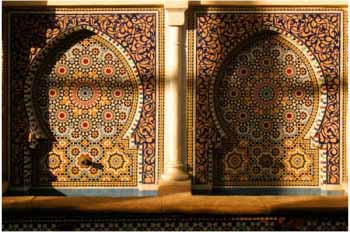
By Anouar Majid
The violence that erupted in the wake of the YouTube on the Prophet Mohammed is a wake-up call to all who care about the future of human civilization and, particularly, that of Arabs and Muslims living in Muslim-majority nations. (Muslims living in the United States are having the time of their lives—the land of what Iranian mullahs call Great Satan is the best place on earth for them.) Still, Muslims everywhere have been unable to unbind their ties to religious orthodoxy, clinging tenaciously to the decrees of religious scholars in mosques, as well as to the fatwas pronounced on the tube and the net alike.
I arrived in Morocco, arguably the most liberal country in the Arab world and a reliable partner of the West for decades, on the eve of the YouTube trailer controversy. As soon as I heard about the murders in Libya and the violent protests in Egypt and elsewhere, I chose not to be silent in the face of Islamist fury. I spent time explaining to cab drivers, unemployed youths, poorly educated workers, and highly educated professionals that the US government can’t control what people post on the Internet. I tried to get my interlocutors to understand that Muslims are laughably easy to manipulate—all one only has to do is draw a caricature of the Prophet or make a film about him to turn them into the world’s laughingstock.
The typical response I get is one about the inviolate nature of monotheistic prophets. Civility, I keep getting told, consists of respecting other faiths and beliefs. Sunni Muslims say this without the slightest sense of irony, conveniently forgetting their genocidal murders of Shiites, let alone their persecution of vulnerable Christians in Pakistan and other minorities elsewhere. (The Jews, of course, have long left Arab lands.)
Politics is only the icing on the iceberg. Try starting a conversation about cremation, for example, or asking about whether good women will get their male houris in heaven. I look at dead-serious believers in the face and start enumerating the deficits of Arab and Muslim-majority nations: No decent public education, poor performance in sports, no adequate health care, no rule of law, rampant corruption in public office, widespread social hypocrisy, no employment opportunities, and total dependency on the unbelievers, the kuffar, for everything they consume. People nod—and nod—in agreement and instantly go back to their default position: Islam is the only truth. The faith, as interpreted by the ulama (religious scholars) is so deeply woven in their psyches that they genuinely believe that questioning it might bring the wrath of God on them.
This is the problem of Muslims right now. They are frightened of freedom and what it could bring. Yet without genuine freedom they cannot create or produce anything of value. They can’t be critical thinkers, a quality that is indispensable to progress and development. Muslims live in a world of ever expanding red lines, beginning with the prohibition of reading the Qur’an as anything but divine and believing that Mohammed is God’s last prophet. Try suggesting that the historical evidence–however preliminary–points to the obvious fact that the Qur’an, like all texts, is the product of human hands and editorial decisions over a long span of time and see bonhomie turn into menacing perplexity. One could have serious doubts as to whether Mohammed is the historical figure we have come to know, but such views would be unlikely to be listened to or taken seriously, and those who brave Islamic anger to say so are often dismissed as apologists for the West and Israel. Some may be, but the argument has intellectual merit. If one reminds Muslims that the age of righteous caliphs is one of blood and terror, that a golden age of Islam is a myth, all sorts of disclaimers are thrown at the speaker. And so it goes. There is no budging—the world must adapt to Islamic beliefs, or the world must go to hell.
And so Muslims sit still in their sad complacency. They buy all things Western but condemn Westerners as less than perfect. The wealthy send their children to American schools and colleges but expect them to stick to medieval doctrines and come back to a society that is oppressive to women and insulting to many modern men. They start revolts and overthrow sclerotic regimes, but they do so to reinstall medieval social orders, not create new systems for the future. They rail against Israel but refuse to confess that the tiny nation has done better for its people in its brief history than all Muslims combined have done for theirs in a thousand years. Muslims, in short, refuse to even consider that their religion has failed them.
Giving the fury swirling around us, one would be tempted to calm things down by mollifying Muslim fanatics with apologies and reminders about the greatness of Islam and its peace-loving people. That is not a good idea, most especially for those, like me, who care about Muslim-majority nations. We need to push ahead with hard questions about the origins of the faith and why Islam is a historical construction, not something that fell down from the heavens. (The same approach applies to other faiths, of course.) We should take a second look at our view of Islamic history, revisit old assumptions, and allow the chips of tested knowledge to fall where they may.
Muslims won’t improve their lot unless they know how to handle criticism, irony, and doubt. Religion, like any addiction, may be hard to stamp out from our lives, but we should at least try to contain its effects. That should be the goal of those who care about peace. The reader may disagree with me, but I really don’t see another way for people in Muslim-majority nations to build a decent a society for themselves and their children.
Anouar Majid is the author of A Call for Heresy and many books on Islam and the West.